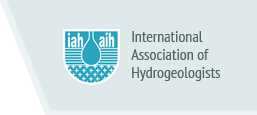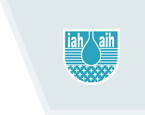Peer-reviewed Papers
Re, V., Rizzi, J., Tuci, C., Tringali, C., Mancin, M., Mendieta, E., & Marcomini, A. (2023). Challenges and opportunities of water quality monitoring and multi-stakeholder management in small islands: the case of Santa Cruz, Galápagos (Ecuador). Environment, Development and Sustainability, 25(5), 3867-3891. https://doi.org/10.1007/s10668-022-02219-4
Crayol, E., Huneau, F., Garel, E., Mattei, A., Santoni, S., Pasqualini, V., & Re, V. (2023). Socio-hydrogeological survey and assessment of organic pollutants to highlight and trace back pollution fluxes threatening a coastal groundwater-dependent ecosystem. Science of The Total Environment, 898, 165343. https://doi.org/10.1016/j.scitotenv.2023.165343
Huggins, X., Gleeson, T., Castilla‐Rho, J., Holley, C., Re, V., & Famiglietti, J. S. (2023). Groundwater connections and sustainability in social‐ecological systems. Groundwater. https://doi.org/10.1111/gwat.13305
Latchmore, T., Lavallee, S., Hynds, P. D., Brown, R. S., & Majury, A. (2023). Integrating consumer risk perception and awareness with simulation-based quantitative microbial risk assessment using a coupled systems framework: A case study of private groundwater users in Ontario. Journal of Environmental Management, 331, 117112. https://doi.org/10.1016/j.jenvman.2022.117112
Rodriguez-Levy, I. E., Centellas-Levy, M. A., Ferreira, W. J., Mustafa, S. M. T., Rivera-Rodriguez, L., Gonzales Amaya, A., & Huysmans, M. (2023). Development and Application of a Methodology for the Identification of Potential Groundwater Recharge Zones: A Case Study in the Virvini Micro-Basin, Tiraque, Bolivia. Water, 15(7), 1268. https://doi.org/10.3390/w15071268
Aguirre, K. A., & Paredes Cuervo, D. (2023). Water Safety and Water Governance: A Scientometric Review. Sustainability, 15(9), 7164. https://doi.org/10.3390/su15097164
Wongsirikajorn, M., McNally, C. G., Gold, A. J., & Uchida, E. (2023). High salinity in drinking water creating pathways towards chronic poverty: A case study of coastal communities in Tanzania. Ambio, 1-15. https://doi.org/10.1007/s13280-023-01879-4
Penny, J., Ordens, C. M., Barnett, S., Djordjević, S., & Chen, A. S. (2023). Vineyards, vegetables or business-as-usual? Stakeholder-informed land use change modelling to predict the future of a groundwater-dependent prime-wine region under climate change. Agricultural Water Management, 287, 108417. https://doi.org/10.1016/j.agwat.2023.108417
Shalsi, S., Ordens, C. M., Curtis, A., & Simmons, C. T. (2022). Coming together: insights from an Australian example of collective action to co-manage groundwater. Journal of Hydrology, 608, 127658. https://doi.org/10.1016/j.jhydrol.2022.127658
Carrión-Mero, P., Morante-Carballo, F., Vargas-Ormaza, V., Apolo-Masache, B., & Montalvo, M. J. (2021). A Conceptual Socio-Hydrogeological Model Applied to Sustainable Water Management. Case Study of the Valdivia River Basin, Southwestern Ecuador. International Journal of Sustainable Development & Planning, 16(7). https://doi.org/10.18280/ijsdp.160708
Frommen, T. & Moss, T. (2021). Pasts and Presents of Urban Socio-Hydrogeology: Groundwater Levels in Berlin, 1870–2020. Water 13(16), 2261; https://doi.org/10.3390/w13162261
Rangecroft, S., (2020). Guiding principles for hydrologists conducting interdisciplinary research and fieldwork with participants. Hydrological Sciences Journal. https://doi.org/10.1080/02626667.2020.1852241
, , The benefits and negative impacts of citizen science applications to water as experienced by participants and communities. WIREs Water; e1488. https://doi.org/10.1002/wat2.1488
Musacchio, A., Re, V., Mas-Pla, J. & Sacchi, E. (2020). EU Nitrates Directive, from theory to practice: Environmental effectiveness and influence of regional governance on its performance. Ambio 49, 504–516. https://doi.org/10.1007/s13280-019-01197-8
Shalsi, S., Ordens, C.M., Curtis, A. & Simmons, C.T. (2019). Can collective action address the “tragedy of the commons” in groundwater management? Insights from an Australian case study. Hydrogeology Journal 27(7), 2471-2483. https://doi.org/10.1007/s10040-019-01986-1
Hynds, P., Regan, S., Andrade, L., Mooney, S., O’Malley, K., DiPelino, S. & O’Dwyer, J. (2018). Muddy Waters: Refining the Way forward for the “Sustainability Science” of Socio-Hydrogeology. Water 10(9), 1111. https://www.mdpi.com/2073-4441/10/9/1111/htm
Tringali, C., Re, V., Siciliano, G., Chkir, N., Tuci, C. & Zouari, K. (2017). Insights and participatory actions driven by a socio-hydrogeological approach for groundwater management: the Grombalia Basin case study (Tunisia). Hydrogeology Journal 25(5), 1241-1255. https://link.springer.com/article/10.1007/s10040-017-1542-z
Limaye, S. (2017). Socio-hydrogeology and low-income countries: taking science to rural society. Hydrogeology Journal, 25(7) 1927-1930. https://link.springer.com/article/10.1007%2Fs10040-017-1656-3
Re, V., Sacchi, E., Kammoun, S., Tringali, C., Trabelsi, R., Zouari, K. & Daniele, S. (2017). Integrated socio-hydrogeological approach to tackle nitrate contamination in groundwater resources. The case of Grombalia Basin (Tunisia). Science of The Total Environment 593, 664-676. doi: http://dx.doi.org/10.1016/j.scitotenv.2017.03.151
Re, V. (2015). Incorporating the social dimension into hydrogeochemical investigations for rural development: the Bir Al-Nas approach for socio-hydrogeology. Hydrogeology Journal 23(7), 1293-1304. https://link.springer.com/article/10.1007/s10040-015-1284-8
Mitchell, M., Curtis, A., Sharp, E., & Mendham, E. (2012). Directions for social research to underpin improved groundwater management. Journal of Hydrology, 448-449, 223-231. http://dx.doi.org/10.1016/j.jhydrol.2012.04.056
Gerlak, A. K., Varady, R. G., Petit, O. & Haverland, A. C. (2011). Hydrosolidarity and beyond: can ethics and equity find a place in today’s water resource management? Water International 36(3): 251-265. https://doi.org/10.1080/02508060.2011.586552





